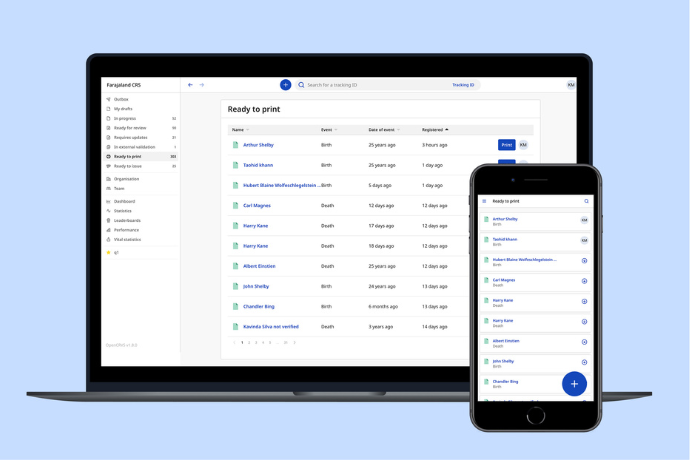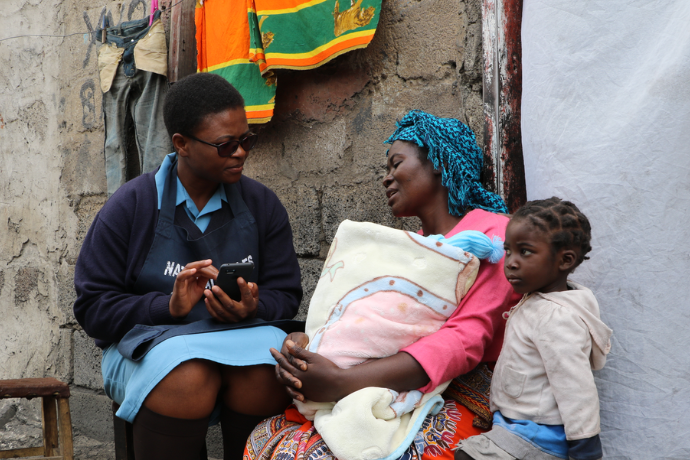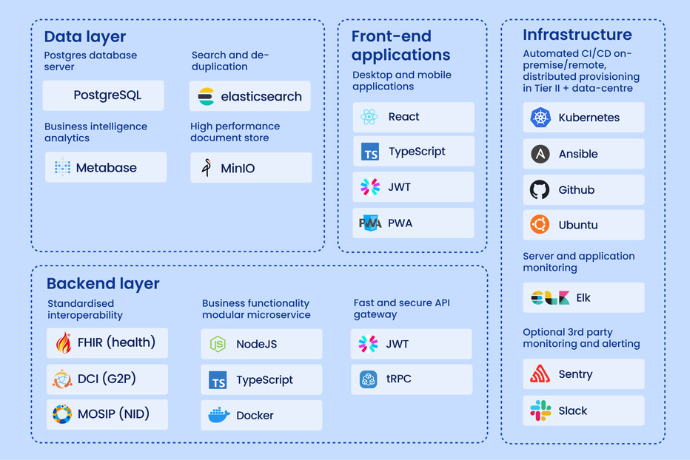
Language
Javascript
Tool Type
Desktop app, Mobile app, API, Web app
License
Mozilla Public License 2.0
Version
1.8.1
Jembi

OpenCRVS is an open-source digital civil registration and vital statistics (CRVS) platform designed to help governments provide universal, secure, and efficient registration of vital events such as births and deaths. It enables real-time data collection, interoperability with other national systems, and offline-first operation to ensure coverage in remote areas. By modernising CRVS processes, OpenCRVS supports improved service delivery and strengthens public health and social protection systems. Designed for resource-limited settings, OpenCRVS seeks to ensure universal civil registration and promote informed decision-making in any national context. Its implementation in Bangladesh, in collaboration with key government entities, has demonstrated its ability to significantly improve civil registration systems, ensuring that no one is left behind and strengthening the foundations for inclusive public policies.
OpenCRVS solves the problem of incomplete and inefficient civil registration systems, which leave millions of people without legal identity and exclude them from essential services. It replaces paper-based, fragmented, and inaccessible processes with a secure, interoperable, and user-friendly digital platform that ensures every birth, death, and other vital event can be registered, anywhere, even in offline environments helping governments achieve universal coverage and accurate vital statistics.
OpenCRVS works by digitising the entire civil registration process and connecting it with other government systems to ensure universal, secure, and efficient vital event registration. \- Offline-first registration: Officials can register births, deaths, and other events in the field without internet; data syncs automatically when online. \- Authentication & permissions: Secure logins and role-based access control for civil registrars, health workers, and other authorised personnel. \- Workflow management: Guides users through each step of the registration process, from event notification to certificate issuance. \- Interoperability: Integrates with national ID systems, health information systems, and statistics offices using open standards. \- Data capture & analytics: Collects demographic and geolocation data, enabling real-time dashboards and reports for policy-making.
* HL7 FHIR – Core data model and APIs for representing and exchanging health and vital event data. * W3C WebSub – Publish–subscribe notifications for event webhooks. * OAuth 2.0 – Secure machine-to-machine authentication and authorisation. * OpenHIE architectural standard – Designed for interoperability with health information exchange architectures.

Connect with the Development Code team and discover how our carefully curated open source tools can support your institution in Latin America and the Caribbean. Contact us to explore solutions, resolve implementation issues, share reuse successes or present a new tool. Write to [email protected]

This image depicts a user interface for a content management system, showing a list titled "Ready for review" on both a desktop and a mobile screen.

Nurse Maneya Mwansakilwa serves Kanyama mothers and babies, urging care be brought closer to families.

OpenCRVS is built on modular, event-driven microservices that are configurable, scalable, and protect data sovereignty.
Digital solution for civil registration, designed for environments with limited resources.
Official list of open source tools endorsed by the Digital Public Goods Alliance. This tool is part of this registry.
Article that presents the global alliance to promote digital public goods and its relationship with the IDB.
Guide to design, configure and operate OpenCRVS according to the needs of each country.
How OpenCRVS modernizes civil registration: digital records & certificates, offline capture, secure ID/health integration, and timely vital stats.
